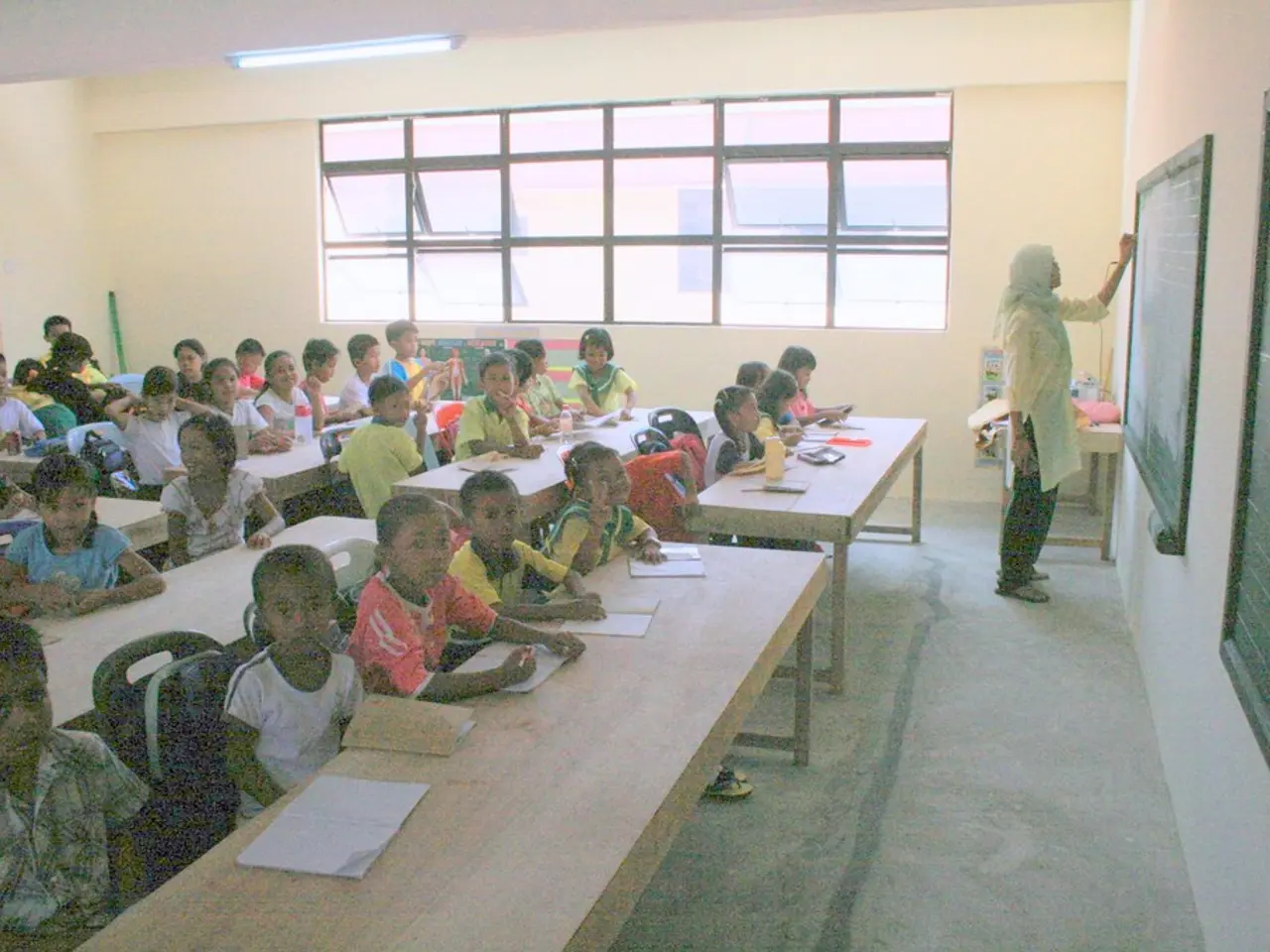AI's Role and Challenges in Special Education: Legal Concerns and Implications
In the ever-evolving landscape of education, Artificial Intelligence (AI) is increasingly being employed to aid special education teachers and students. However, it is crucial to remember that AI should complement, not replace, human expertise in this field.
Firstly, it is essential for schools to support teachers as they adapt to their shifting professional roles when using AI. This includes providing resources to explain the specific parts of each student's programming and documentation, ensuring professional reasoning is always evident.
Schools should also create specific statements about the use of AI in student programming beyond general district guidelines. These statements should outline approved AI programs and staff expectations for using AI to enhance, not replace, professional judgment.
When it comes to AI-generated documents such as Individualised Education Programs (IEPs) or behavior plans, they should be used with careful consideration by teachers. AI-suggested accommodations should not be added to an IEP without trying them first and collecting data to see if they work for the student.
Transparency is key in the use of AI in student programming. Schools should be open about their use of AI, easing concerns about individualized support and ensuring families are aware of AI's role.
AI can be a powerful tool to support students and educators in special education. However, if AI is presented as a magic solution to overworked teachers, it can negatively impact the perception of students with disabilities. It is essential to avoid framing AI as a replacement for human effort and empathy.
The improper deployment of AI in special education can diminish teachers’ professional agency and risk promoting reductive views of students with disabilities. AI systems that rely heavily on data-driven and rigid criteria risk reinforcing deficit-based views of these students. To avoid this, schools should prioritize human-centered AI design and ethical implementation.
AI-generated educational documents should be personalized for each student to avoid feelings of impersonalized education. Teachers are responsible for using their professional judgment when making decisions, even when using AI.
Decreased teacher agency can lead to burnout and attrition due to the shift in roles. To mitigate this, schools should provide ongoing professional development and support for teachers as they navigate the integration of AI into their teaching practices.
Lastly, be aware of the language used to frame the use of AI in special education to avoid negative perceptions of students with disabilities. Best practice guidelines emphasize that AI should support, not replace, teachers' professional judgment in special education.
In conclusion, AI offers personalized learning benefits in special education, but its proper deployment is essential to maintain the professional agency of teachers, avoid negative perceptions of students with disabilities, and ensure a supportive and inclusive learning environment for all.
Teacher judgment should always remain a crucial factor in the use of AI for student learning in special education, as AI-generated suggestions should be trialed and data-backed before being implemented.
Schools should promote the ethics of AI use in education by ensuring human-centered AI design, which gives priority to student needs and refrains from reinforcing deficit- based views on students with disabilities.
Teachers must receive ongoing support and professional development to create a transparent and inclusive environment for families, as the use of AI in student programming becomes increasingly embraced.
With the proper implementation of AI, it can enhance the learning experience for students in special education, contributing to more effective education and self-development opportunities.
By applying best practices in AI deployment, schools can make meaningful strides in fostering a supportive learning and assessment environment for students, while ensuring technology like AI complements, rather than replaces, a teacher's empathy and understanding.




